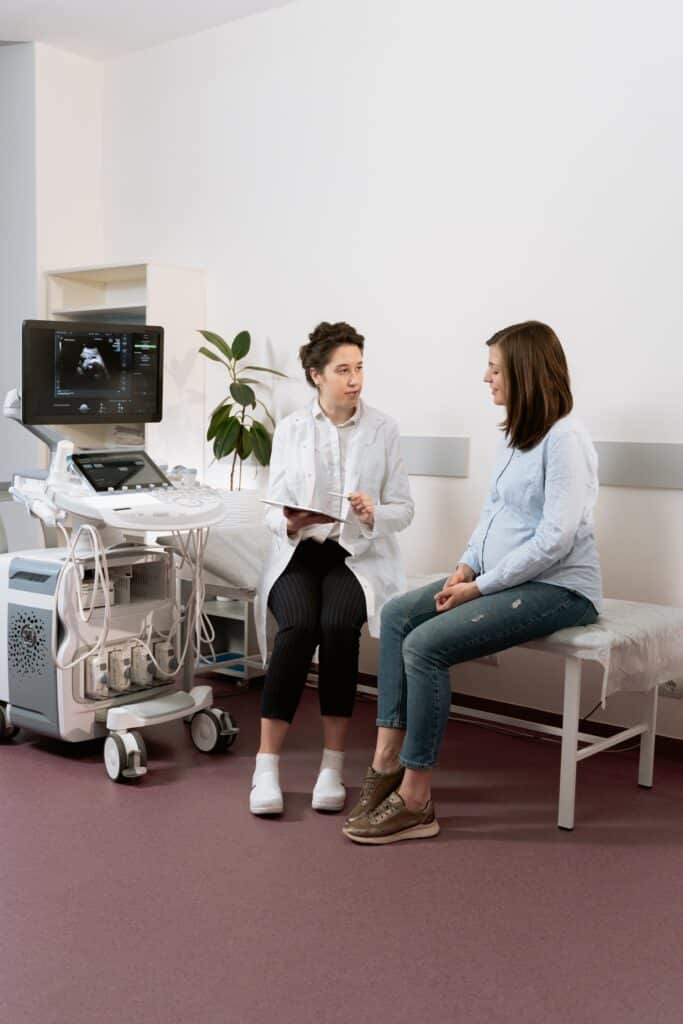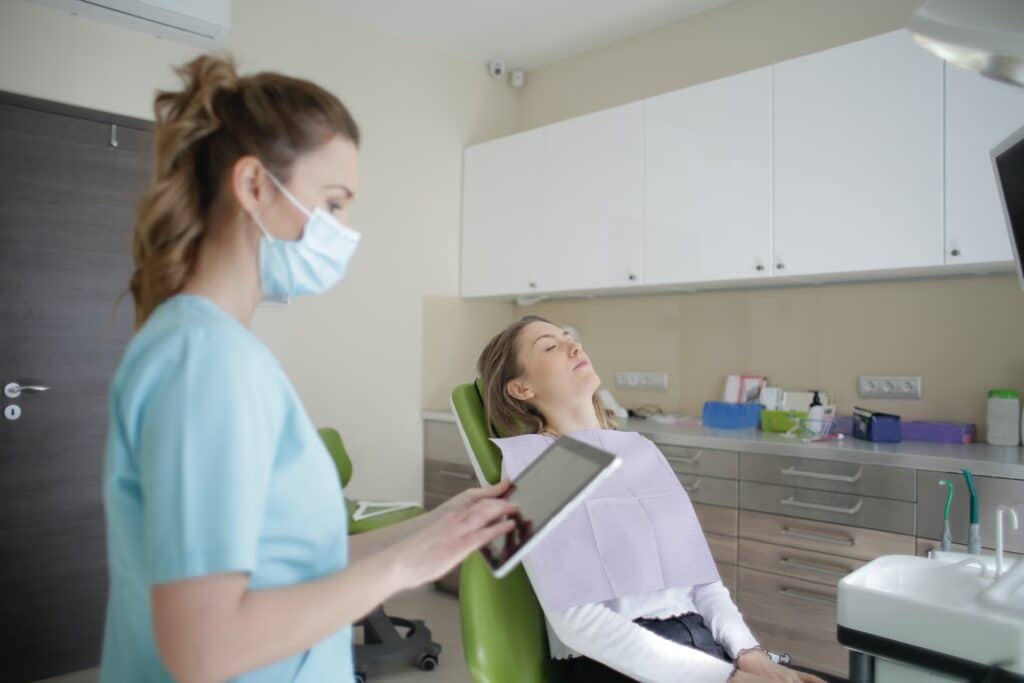As a healthcare professional, knowing the tasks within your scope of practice is crucial.
Scope of practice laws and regulations exist to ensure that medical professionals are only performing functions that are appropriate for their level of training and expertise.
For example, a registered nurse is trained to give injections but is not authorized to perform surgeries as it is outside their scope of practice.
Similarly, medical assistants are usually responsible for a range of tasks, including both clinical and administrative duties, but the specific tasks that fall under their scope of practice may vary from state to state.
(See: CMAA vs CCMA)
To provide safe and effective care, medical assistants need to be aware of their scope of practice and only perform authorized tasks.
In this article, we will discover more about the scope of practice that can be practiced by medical assistants and more.
So, read on!
See more on: What is a Medical Assistant
Medical Assistant Scope of Practice By State
The laws and regulations regarding medical assisting are inconsistent across all states, with variations in certification requirements and permitted tasks. Some states mandate medical assistant certification, while others do not.
Special training may be required to perform certain tasks, such as giving injections, drawing blood, and calling prescription refills in some states but not others.
Additionally, the specifics of a medical assistant’s scope of practice can vary significantly, with some states providing detailed descriptions while others offer only general guidelines.
Medical assistants need to be aware of the regulations in their state to ensure that they are providing safe and appropriate care.
See more: 12 Reasons to Become a Medical Assistant
Let us see how the scope of practice differs for medical assistants according to each state:
Medical Assistants’ Scope of Practice in Alabama
Medical assistants in Alabama are usually permitted to perform tasks like drawing blood and giving intramuscular injections, apart from their general job duties.
Also see: Medical Assistant Job Duties
Medical Assistants’ Scope of Practice in Alaska
It’s important to note that in Alaska, medical assistants are required to work under the supervision of a licensed healthcare provider and may only perform tasks that have been specifically delegated to them by that provider.
Additionally, the provider must assess each patient and task to determine if the medical assistant is appropriate and safe to perform. Medical assistants in Alaska are not allowed to care for critically ill or unstable patients.
Medical Assistants’ Scope of Practice in Arizona
In Arizona, medical assistants are not required to be certified, but they are required to receive proper training before they can begin working. Acceptable training includes completing an accredited medical assisting program or a program created and supervised by a physician.
If you are not certified, your employer must provide appropriate education and training before you begin working as a medical assistant in Arizona.
See: Accelerated Medical Assistant Program
Medical Assistants’ Scope of Practice in Arkansas
In Arkansas, medical assistants are not allowed to delegate tasks to another healthcare provider, nor are they permitted to diagnose any illness or injury.
However, they are authorized to administer medications and injections, provided a licensed healthcare provider has assessed the patient first.
Medical Assistants’ Scope of Practice in California
California has specific requirements for training hours that medical assistants must meet to administer medications, including injections and inhalation.
The training includes 10 hours each of administering injections and performing skin tests, 10 hours of venipuncture and skin puncture for blood withdrawal, and at least 10 instances of each type of injection and skin test, as well as 10 hours of training in administering medical by inhalation. This is all in addition to the general training required for medical assistants in California.
Also see: Can Medical Assistants Draw Blood?
Medical Assistants’ Scope of Practice in Colorado
In addition to routine tasks, medical assistants in Colorado may also administer medications, including injections, as long as it is under the supervision of a licensed provider.
However, they are not allowed to perform invasive procedures or any task that requires the use of anesthesia.
Medical Assistants’ Scope of Practice in Connecticut
In Connecticut, medical assistants are not required to be certified to work. However, the state’s Department of Health prohibits them from administering medications or performing radiography.
This includes all routes of medication administration, as well as oxygen therapy, immunizations, and tuberculin testing.
However, due to the COVID-19 pandemic, medical assistants who have received special training are now allowed to administer vaccines.
Medical Assistants’ Scope of Practice in Delaware
Under Delaware law, medical assistants are authorized to administer medications, conduct blood draws, and perform other tasks delegated to them by a licensed provider, but they cannot perform clinical assessments, evaluations, or interpretations.
Medical Assistants’ Scope of Practice in Florida
In Florida, the state clearly defines the tasks that fall within a medical assistant’s scope of practice. These tasks include:
– Administering injections via subcutaneous, intramuscular, and intradermal routes
– Performing skin tests
– Drawing blood
– Operating electrocardiogram machines (EKGs)
– Removing sutures and changing dressings
– Collecting specimens for laboratory testing
– Conducting basic laboratory tests and waived tests as authorized by the Clinical Laboratory Improvement Amendments (CLIA)
– Providing patient education and instructions, including prescription medication instructions given to the patient by the supervising physician or other licensed practitioners.
Medical assistants in Florida are not allowed to interpret test results or diagnose medical conditions.
Also see: Medical Assistant Educational Requirements
Medical Assistants’ Scope of Practice in Georgia
In Georgia, medical assistants are permitted to administer intramuscular or subcutaneous injections and perform venous blood draws, but only when a licensed provider is present on the premises.
However, medical assistants can perform other tasks like taking vital signs without a provider being present.
Also see: Are Medical Assistants Licenses Required?
Medical Assistants’ Scope of Practice in Hawaii
In Hawaii, medical assistants are considered “unlicensed assistive personnel,” and their scope of practice is limited to tasks that have been delegated to them by a licensed healthcare provider.
Medical assistants are allowed to perform certain clinical tasks, such as giving injections, performing aseptic procedures, and assisting with procedures, as long as they have been appropriately trained and a licensed provider has assessed the patient and task to ensure that it is safe and appropriate.
However, medical assistants in Hawaii are not allowed to perform any task that requires professional clinical judgment, evaluation, diagnosis, or interpretation.
Medical Assistants’ Scope of Practice in Idaho
In Idaho, certification is only required for medical assistants working in specific facilities. Otherwise, medical assistants can perform any task delegated to them by a physician as long as it is reasonable.
Medical Assistants’ Scope of Practice in Illinois
In Illinois, medical assistants are not authorized to administer medications according to the Nurse Practice Act. They are also prohibited from performing any task that requires clinical judgment or interpretation of results, and they cannot care for critically ill patients.
However, medical assistants can perform routine tasks delegated to them by licensed providers, such as taking vital signs and performing basic procedures.
Medical Assistants’ Scope of Practice in Indiana
Indiana law permits medical assistants to administer medication and undertake any task delegated to them by a physician.
The physician assumes responsibility for any action delegated to the medical assistant, and the medical assistant must receive a written order from the physician before administering medication or performing any delegated task.
Medical Assistants’ Scope of Practice in Iowa
According to Iowa laws, medical assistants can perform any task that is delegated to them, provided a registered nurse or physician supervises them. It is the responsibility of the nurse or physician to delegate only safe tasks to the medical assistant.
Medical Assistants’ Scope of Practice in Kansas
In Kansas, medical assistants are permitted to administer medication and injections, except when there is a reasonable risk of harm associated with the medication.
However, it is left to the provider’s discretion to ensure the medication and dosage are appropriate before the medical assistant administers them.
Medical Assistants’ Scope of Practice in Kentucky
In Kentucky, medical assistants can perform any task a licensed healthcare provider delegated to them as long as the provider has assessed the patient and deemed the task appropriate for the medical assistant to perform.
However, medical assistants in Kentucky are not authorized to perform invasive procedures, including surgical procedures or the insertion or removal of devices.
Medical Assistants’ Scope of Practice in Louisiana
It’s important to note that medical assistants in Louisiana are allowed to administer medications, but there are specific restrictions on which medications they can administer.
These restrictions include oxygen, narcotics, blood products, intravenous medications, and insulin. Medical assistants must undergo formal training in medication administration before they are permitted to administer any type of medication.
Medical Assistants’ Scope of Practice in Maine
In Maine, medical assistants can perform any task delegated to them by a licensed provider, but the provider who delegates the task assumes full responsibility.
Medical Assistants’ Scope of Practice in Maryland
In Maryland, medical assistants can perform certain tasks independently, including patient preparation for physician examination, patient history interview, collecting and processing specimens, pregnancy tests, dipstick and microscopic urinalysis, and rapid streptococcal testing and throat cultures.
They can also apply tuberculin skin tests, perform electrocardiography, administer basic pulmonary function tests, and perform visual field tests.
Medical Assistants’ Scope of Practice in Mississippi
It’s important to note that while there may not be specific laws for medical assistants in Mississippi, the state’s Board of Medical Licensure guides delegating tasks to medical assistants.
According to this guidance, medical assistants may perform tasks that are delegated to them by a licensed healthcare provider, but the provider must ensure that the medical assistant is competent to perform the task and must supervise the medical assistant’s performance of the task.
Additionally, the provider is ultimately responsible for the actions of the medical assistant.
Medical Assistants’ Scope of Practice in New Jersey
In New Jersey, medical assistants are only required to be certified if they will be administering injections. However, they are allowed to perform any task that a physician delegates to them as long as it is reasonable.
Medical Assistants’ Scope of Practice in New York
The law in New York specifies a list of tasks that medical assistants are permitted to perform. These tasks include secretarial work, measuring vital signs, performing ECGs, removing sutures or staples, and collecting and preparing laboratory specimens such as urine dipsticks, phlebotomy, cheek swabs, throat swabs, and superficial cultures.
Additionally, medical assistants in New York can perform basic hearing and vision tests, provide prepared family education and instruction, change or apply wound dressings (excluding casts), and apply an allergen patch test (without interpreting it).
Medical Assistants’ Scope of Practice in Oregon
Oregon law allows medical assistants to perform tasks that have been delegated to them by a licensed provider. However, the provider remains responsible for any delegated task.
Medical Assistants’ Scope of Practice in Pennsylvania
In Pennsylvania, medical assistants can perform any task that has been delegated to them by a licensed provider, but the provider will be held responsible for the delegated task.
Medical Assistants’ Scope of Practice in Rhode Island
Rhode Island requires medical assistants to be certified to take laboratory specimens, administer vaccines, and administer medication, while uncertified medical assistants can perform other delegated tasks as long as a licensed provider supervises them.
Medical Assistants’ Scope of Practice in South Dakota
It is important to note that while there are no specific laws for medical assistants in South Dakota, the South Dakota Board of Medical and Osteopathic Examiners has issued guidelines for physicians delegating tasks to medical assistants.
These guidelines state that medical assistants can perform any task that is within their training and competency as long as a licensed healthcare provider supervises them.

Do You Want To Become a Medical Assistant? Check Out Free Medical Assistant Masterclass!
In our masterclass you learn:
- How to be a medical assistant faster…in just 4 months!
- Avoid student debt & driving to classes
- #1 thing employers want from Medical Assistants
- How to stand-apart & get a university certificate for a strong resume
Medical Assistants’ Scope of Practice in Tennessee
It is important to note that while medical assistants in Tennessee may be able to give injections, administer medication, and perform other delegated tasks, they must do so under the supervision and direction of a licensed provider.
The provider remains responsible for any task that is delegated to the medical assistant.
Medical Assistants’ Scope of Practice in Utah
In Utah, medical assistants are prohibited from performing surgical procedures, prescribing medication, or administering anesthesia.
However, they are permitted to perform other tasks under the supervision of a licensed healthcare provider who delegates the task as long as the medical assistant is competent of performing the task safely.
Medical Assistants’ Scope of Practice in Vermont
According to Vermont law, medical assistants can carry out any task that a licensed provider delegates to them, but the provider will be held accountable for the delegated task.
Medical Assistants’ Scope of Practice in Washington
In Washington, obtaining certification as a medical assistant before practicing is mandatory. Certified medical assistants can perform any task delegated to them by a physician, provided it is reasonable and within the scope of their certification.
Medical Assistants’ Scope of Practice in Wyoming
In Wyoming, medical assistants can perform any task that a licensed provider delegates to them as long as the medical assistant has the skills and knowledge to perform the task safely.
The licensed provider will be held responsible for any task they delegate to the medical assistant.
How To Become a Medical Assistant
Even though medical assistant certification is not mandatory in most states except Washington, it is highly recommended as employers prefer certified candidates.
As the demand for medical assistants increases, other states may also expect their candidates to be certified, as it demonstrates that you have the necessary skills and expertise to provide safe and effective patient care.
Also see: Medical Assistant Skills
Obtaining medical assistant certification is a relatively quick and affordable process.
Here is the general process that will tell you how to become a medical assistant–
1. Complete your high school diploma or a GED
Although becoming a medical assistant does not require a degree, the minimum requirement is to complete your high school diploma or a GED.
Also see: Medical Assistant Degree vs Certificate
2. Get medical assistant training
Most employers prefer candidates who undertake medical assistance training, as this helps you gain the necessary skills required to perform the day-to-day tasks. This is not necessary for most states but is highly recommended.
There are three main methods of getting your medical assistant training, getting an associate’s degree from a technical university, getting a diploma from a community college, or completing an online training program.
See: Is Medical Assistant Degree Required?
Completing your training through online training programs is the most recommended, as it offers several advantages over other methods, such as
# It allows you to complete your training much faster, in as little as 6 months
#Allows you to learn at your own pace and schedule and from the comfort of your own home
#Costs much less than its alternatives (See: Medical Assistant Programs Cost).
Here is more on Medical Assistant Program
3. Apply for externships
If you opt for online training programs, they usually offer externship opportunities after you finish your course. However, you can also choose to apply for externships at companies you have shortlisted on your own.
An externship is considered necessary as it provides the essential hands-on job training to help you step foot into the workforce smoothly.
Also read: Medical Assistant Externships
4. Get Certified
Although not necessary, employers highly prefer candidates who obtain their certifications, which implies that they have the necessary skills and educational competence to handle the responsibilities of a medical assistant.
There are many types of certifications available for medical assistants, however, the most prominent and well-accepted ones are the CCMA, RMA, and CMA certifications.
Also see: Medical Assistant Certificate Requirements
5. Apply for jobs
Now that you’re a certified ophthalmic medical assistant, you can start applying for jobs in the type of work setting that is best suited for you.
Also read: How to get Medical Assistant Jobs with no Experience
Conclusion
Understanding the scope of practice for medical assistants across different states is essential for both aspiring professionals and healthcare facilities. The difference in duties and responsibilities can impact job roles, training requirements, and legal boundaries.
Whether you’re considering a career in this field or managing a healthcare team, knowing these state-specific regulations ensures compliance and efficient utilization of skills.
Related Resources:
- How Long Does It Take to Become a Medical Assistant
- Certified Clinical Medical Assistant
- Where Can Medical Assistants Work
- CMA vs CNA
- Medical Assistant Interview Questions
- Military Medical Assistant
- Medical Assistant vs EMT
- National Certified Medical Assistant NCMA
- Medical Assistant Degree Online 6 Weeks
- 4 Week Medical Assistant Program
Related Articles
-
How to Be Successful in College in 2022 – 7 Simple Tips to Succeed
-
How Do Scholarships Work? Read This First…Truth is Shocking
-
7 Best College Majors 2024: What Should I Major In?
-
How to Choose a College – 10 Things You Must Consider in 2024
-
Why Go to College? Top 13 Benefits for Adult Students in 2022
-
Top 5 Best Alternatives to Community College for 2024













